
THE VOICE OF INTERNATIONAL LITHUANIA
|
VilNews has its own Google archive! Type a word in the above search box to find any article.
You can also follow us on Facebook. We have two different pages. Click to open and join.
|
Archive for November, 2015
- Posted by - (9) Comment
My worldviews broadened up and now I was not fitting any longer into the Lithuanian realm. It made me feel lost and confused…

By Rugilė Šablinskaitė
Brussels - Belgium
For many years I have been questioning where my home is. It is quite tricky to define home in this globalized, rapidly moving world where people are so used to traveling and changing their locations within the matter of hours. However, home is this important place where we find security, inner peace and get out of our turtle’s armor. We all unconsciously constantly seek to have home where we could come back after exhausting day at work and feel naked to the deepest corners of our soul. Just be. Ourselves. And say.. I am at home.
I left Lithuania when I turned 18. Inspired by my mother’s stories of her youth years in a new city with new people, I also wanted to experience this time of “golden student years” – shots of her stories were constantly running through my mind, sounding like the best fairytales for kids that inspire one for life full of unknown and exciting discoveries. Being from Vilnius (the dearest city to my heart till this very day), the only option I saw for myself was moving outside of Lithuania (who would change Vilnius for any other city in Lithuania? – I already felt I lived in the heart of it). So, my chosen destination was the UK. There, for the first time in my life I felt homesick. For the first time I realized the weight and the value of the word Motherland (or Fartherland, if you prefer). I learnt about the significant cultural differences, systems of values, traditions, etc. And I started missing something ‘mine’ (and as the great thinker B.Anderson puts it, I fell into the trap of imagined community as nation “is imagined because the members of even the smallest nation will never know most of their fellow-members, meet them, or even hear of them, yet in the minds of each lives the image of their communion”...). When Skyping with my mother, she first started calling my changing feelings and worldviews nationalistic till it turn into a bit of chauvinistic ones. I impatiently waited for my holidays in Lithuania to come, to unite again with ‘likeminded’ (the idea that was planted and already deeply rooted in my soul by the time passing by) people, my fellow countrymen... However. When I got back to Lithuania, unfortunately, no miracle happened. After spending time in the UK, silently my worldviews broadened up and now I was not fitting any longer into the Lithuanian frameworks. It made me feel lost and confused. This confusion resulted in Bachelors dissertation on the role of national identity in a foreign country. And the research results showed that people feel differently about it. For some it’s more important, for some less, while some are completely unaware of it... And so I continued on searching for my place under the sun.
While living for a year in Mexico, I got to learn how deeply I am able to embrace another distant culture. I fell unconditionally in love with it. And it became a big part of me and my life. The experiences there enriched me, taught me to be open, giving, touchy and enthusiastic about the smallest things in the world. I was fascinated by the simplicity of the people - coming from a privileged environment, I felt most warmly welcomed despite my background or situation. Every time I meet a Mexican nowadays, I feel enthusiastic and it feels like meeting a part of me. I remember my Christmas Eve there... The first time I was not able to be with my family, the first time I saw no sparkling snowflakes falling down around me. Silently apart from all that mattered to me and was so dear to the heart. And I was simply not able to tell aloud anyone about the way I felt. So I figured out, I will just stay home alone, making jams from local fruits and fulfill my time writing letters to beloved ones. Then my Mexican Friend appeared on the doorway. Unexpectedly. She said she came to pick me up and I was going to eat dinner with her family with no excuses. As for me Christmas Eve has always been about this magic unspoken peace you find around once per year and family, I found it hard at that moment. But then we came to her place that was so... First thing I noticed and I could not deny it was Love. When you can actually feel love in the air and you feel touched by it in every possible way. Her family was amazing. It brought tears to my eyes when I saw how they live... The conditions were really tough. Nothing compared to the place I was renting. I felt guilty... People who had so little were willing to share with me every single piece they had (and who were I to them?...). And they were so happy. Curious about me. Giving. When simple is beautiful (and here I find the word ‘beautiful’ just grey because you simply cannot imprison that feeling I got into any possible word created on this planet..). When a hand holding you strongly, makes you feel like home. And I was home.
Different countries, different cities, different people. After years spent in the UK, life in Sweden and Germany was a completely different experience. I stopped focusing on the differences between the cultures, constant search for my place and identity but rather I started fully enjoying the time with people that I could share quality time with not leaving gaps open for the doubts. And despite various differences I could see daily, I absolutely enjoyed living in different environments. Daily discoveries that make Life fascinating and exciting. When we can learn from each other rather than judge and compare. Give than wait to be given. Smile rather than turn the eyes away. Love and embrace.
Very important thing I learnt when travelling. Home is an idea. Home is a feeling. We can live in broken shapes anywhere. But these are our friends and family that create the feeling of home. Flats, houses, same as money, come and go. We can change them even though we get psychologically attached to physical locations. But these are only locations... I feel home under the apple tree in my village, by the river where you have the beautiful view of Lithuanian forests same as I feel home in Brussels running in the park through the autumn leaves.. I have parts of me all over the world – people who are dear and precious to me, with whom I feel home. And while now I live in Brussels, I feel home here – I tamed this place and I have people to whom I want to hold on, people who touched my heart in the most fragile and precious ways. People who are the gifts of Life no money could ever buy. It is one of the many homes I have. I am in love with the city, with its people, with what I do. My nationality is and always will be Lithuanian but today I consider myself a world citizen. And I have come only to one conclusion that... Home is where our heart is.



Home is where our heart is J
- Bookmark :
- Digg
- del.icio.us
- Stumbleupon
- Redit it
- Posted by - (12) Comment
Greetings from Toronto
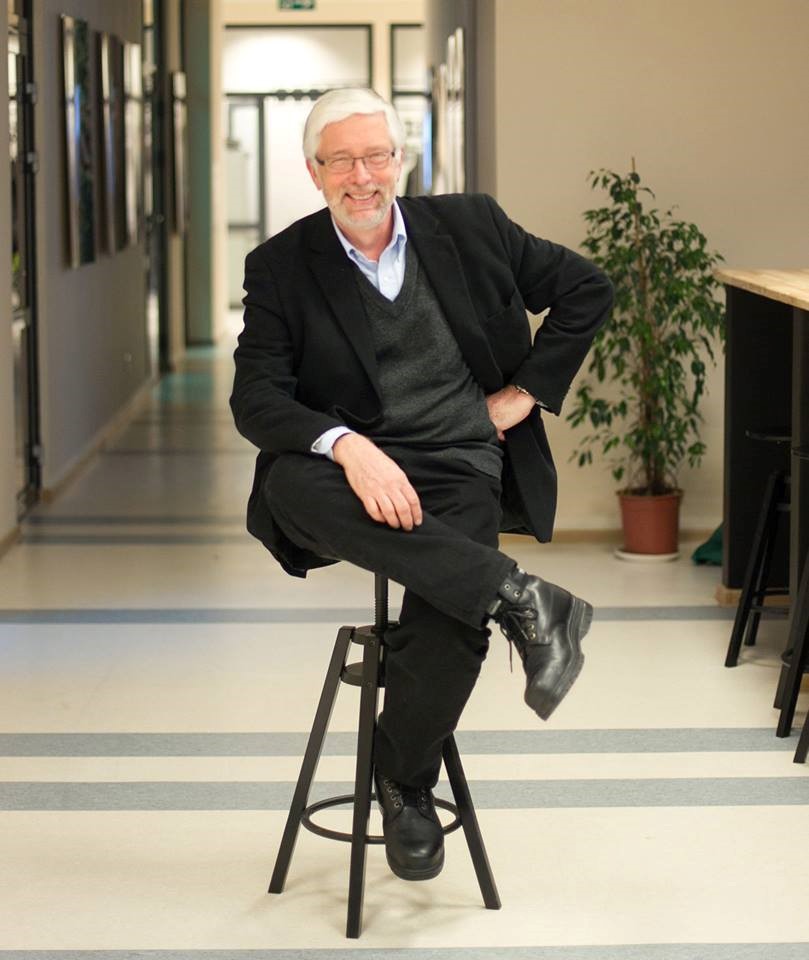
By Antanas Sileika,
Toronto, Canada
Toronto was a major postwar settlement centre for Lithuanian Displaced Persons, and to this day there are two Catholic parishes and one Lutheran one, as well as a Lithuanian House, retirement home, and nursing home. A new wave of immigrants has showed interest in sports.
Although Lithuanian activities have thinned over the decades as that postwar generation died out, the Lithuanian Martyrs’ parish hall is crowded with many, many hundreds of visitors who come to the Lithuanian cemetery for All Souls’ Day. Similarly, the Franciscan parish has standing room only for Christmas Eve mass.
Although I am firmly embedded in the literary culture of Canada, my themes are usually Lithuanian, and I’ll be in Kaunas and Vilnius in mid-November 2015 to give talks about the Lithuanian translations of my novels and short stories, which I write in English.
If you have the Lithuanian language, come by to one of the talks listed in the links below. And if you don’t, you can read more about my work at www.anatanassileika.com
http://www.vdu.lt/lt/rasytojas-antanas-sileika-pristatys-savo-kuryba/
https://leu.lt/lt/lf/lf_naujienos/kvieciame-i-rasytojo-59hc.html
- Bookmark :
- Digg
- del.icio.us
- Stumbleupon
- Redit it
- Posted by - (7) Comment
How to access all our 18
sub-sections here in VilNews
Click on the links below to access each of VilNews' 18 sections. All our sections have their own distinct, different contents, as the headlines suggest. You can also scroll forward to new pages by clicking NEXT at the bottom of each page. We hope you have time to study our many articles!
- Bookmark :
- Digg
- del.icio.us
- Stumbleupon
- Redit it
- Posted by - (0) Comment
Greetings from Texas!
 When one thinks of Texas, the least expected thing that would come to mind is that there are actually Lithuanians in Texas! It turns out that some of the earliest settlers from Lithuania came to Texas with their Prussian neighbors and established themselves here. Most thought they were German, probably because Texas was highly populated by Germans. Recently, within the past 25 years or so, it has been established that there were Lithuanians among the German population.
When one thinks of Texas, the least expected thing that would come to mind is that there are actually Lithuanians in Texas! It turns out that some of the earliest settlers from Lithuania came to Texas with their Prussian neighbors and established themselves here. Most thought they were German, probably because Texas was highly populated by Germans. Recently, within the past 25 years or so, it has been established that there were Lithuanians among the German population.
Here is a link to a video about them: https://www.youtube.com/watch?v=66Y0CJqkGKk
There is also a historical marker about the first Lithuanians in Texas:
http://www.stxmaps.com/go/texas-historical-marker-lithuanians-in-texas.html
There are also two large, active groups of Lithuanians, on in Houston,
By Bernard Terway,
Texas, USA
- Bookmark :
- Digg
- del.icio.us
- Stumbleupon
- Redit it
- Posted by - (0) Comment
Greetings from Venezuela!
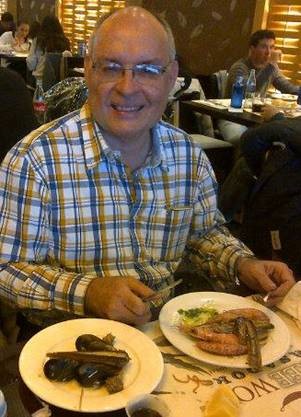
By Vytenis
Architect, Caracas, Venezuela
With great joy and
I am constantly sharing the articles with the Lithuanian Community of Venezuela, from where I'm writing and from where I send Aage and his team my best wishes and success in this new release of VilNews.
Our community is very small, unfortunately, and it has been greatly reduced over the latest years, but we refuse to disappear and have therefore been maintaining the traditions and customs that our grandparents and parents taught us through all the activities organized by our Community.
These are some of our activities:
Commemoration of the Independence celebration of Easter, Christmas, Boy Scout groups, theater, basketball teams, folk dance groups, exchanges with other communities, language training, etc.
VilNews has helped us with Lithuania related articles, to continue to feel proud of having Lithuanian blood in our veins, and keep teaching our youth of its magnificent history, of its people around the world and the mark that it has left in all of us Lithuanians scattered around the world.
Greetings to all Lithuanians around the world:
From
In whatever collaboration you need from us, the Lithuanian Community of Venezuela, within its limits, will always be happy and eager to help and support you ... lots of
Kindest regards, wishing you the best!
Vytenis
- Bookmark :
- Digg
- del.icio.us
- Stumbleupon
- Redit it
- Posted by - (4) Comment
Have Lithuanian ties across the
Baltic Sea become
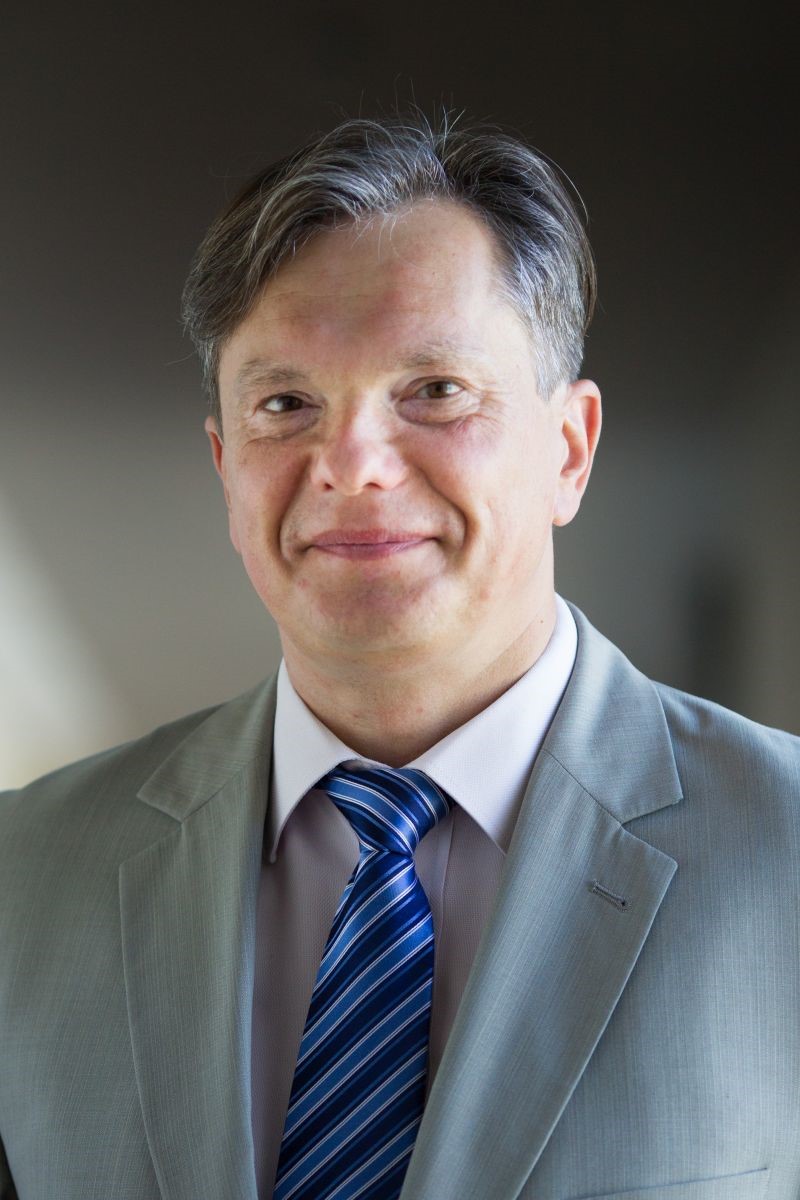
By Eitvydas Bajarūnas
Lithuanian Ambassador to Sweden
My
The two decades that have passed since regaining Lithuania‘s independence can be described as a “building boom”. From the wreckage of a captive Soviet republic, a generation of Lithuanians have built a modern European
Since the restoration of Lithuania’s independence 25 years ago, we have continuously felt a strong support from Nordic countries.
Lithuania took advantage of it very successfully because we soon realized that the assistance and support of the Nordic Countries could help us to play more a significant role in the European and transatlantic space as well as help us solve problems that were urgent for us and the entire region. Nordics, especially – Sweden, became the largest investors in Lithuania, not to mention their financial support for our states’ civil societies,
Several public opinion polls pointed out that Lithuanians believe Lithuania should be associated with the region of Northern Europe, and not with Eastern Europe. Northern orientation dominated in the cases of Estonia and Latvia as well. Orientation towards the North was even proposed by a foreign company that consulted the Government of Lithuania some years ago on image creation issues: in terms of economy Lithuania had rather be associated with the stable, advanced, socially responsible Nordic Countries than the post-soviet space.
Indeed, Lithuania benefits being part of the wider Nordic-Baltic region. Over the last several decades, the Nordic-Baltic region has most probably undergone the greatest transformation. Lithuania developed into a country, associated with economic and fiscal stability, high-level political integration, advanced technologies and high living standards. Extensive and broad cooperation between the countries in the region played a crucial role. The idea that the countries of the region are competitive and economically stable has also been proved by the fact that Nordic Countries have been only slightly affected by the economic and financial crisis that began in 2008, and
The Nordic Baltic Eight (NB8, for short) – consisting of Denmark, Estonia, Iceland, Finland, Latvia, Lithuania, Norway and Sweden – has become a political institution that mirrors the emerging trans-Baltic regional identity. Under the NB8 umbrella, meetings on the ministerial level are now held on a regular basis. Within the European Union context,
Therefore we can talk with a confidence of a “Nordic-Baltic” community, or as the pre-war Lithuanian scientist Kazys Pakštas named it, the “Baltic-Scandic” community. One could only
Recently Lithuania was hosting State visit of Swedish Royal couple. It was symbolic that the main theme of Their Majesties’ visit to Lithuania was “The Baltic Sea unites us”. The sea which used to separate Nordic and Baltic people is now uniting us through numerous political, energy, cultural, research, business, and people-to-people ties. Indeed, we Nordics and Baltics are bound by common values, traditions and culture. The Midsummer celebration – known as Joninės in Lithuania – is the best proof of this. It has become a much-awaited community event in Lithuania, just like in other Nordic and Baltic states, highlighting the strong links between our nations.
But we not only remembering our
True, the Baltic States still have to emulate Nordic countries, which amaze the world by being at the very top of the “Human Development” index and have not been surpassed in terms of living standard. Nordic Countries are one of the most successful regions of the world when estimating not only the quality of living but also the social environment and work culture. Nordic Countries are also leading countries in the field of innovation, high
While much remains to be accomplished, the remarkable achievements of the past twenty years are a testament that Nordic-Baltic region moving to the right direction. Wish us good luck.

- Bookmark :
- Digg
- del.icio.us
- Stumbleupon
- Redit it
- Posted by - (3) Comment
Hi, I am 18, I left
Lithuania two years ago
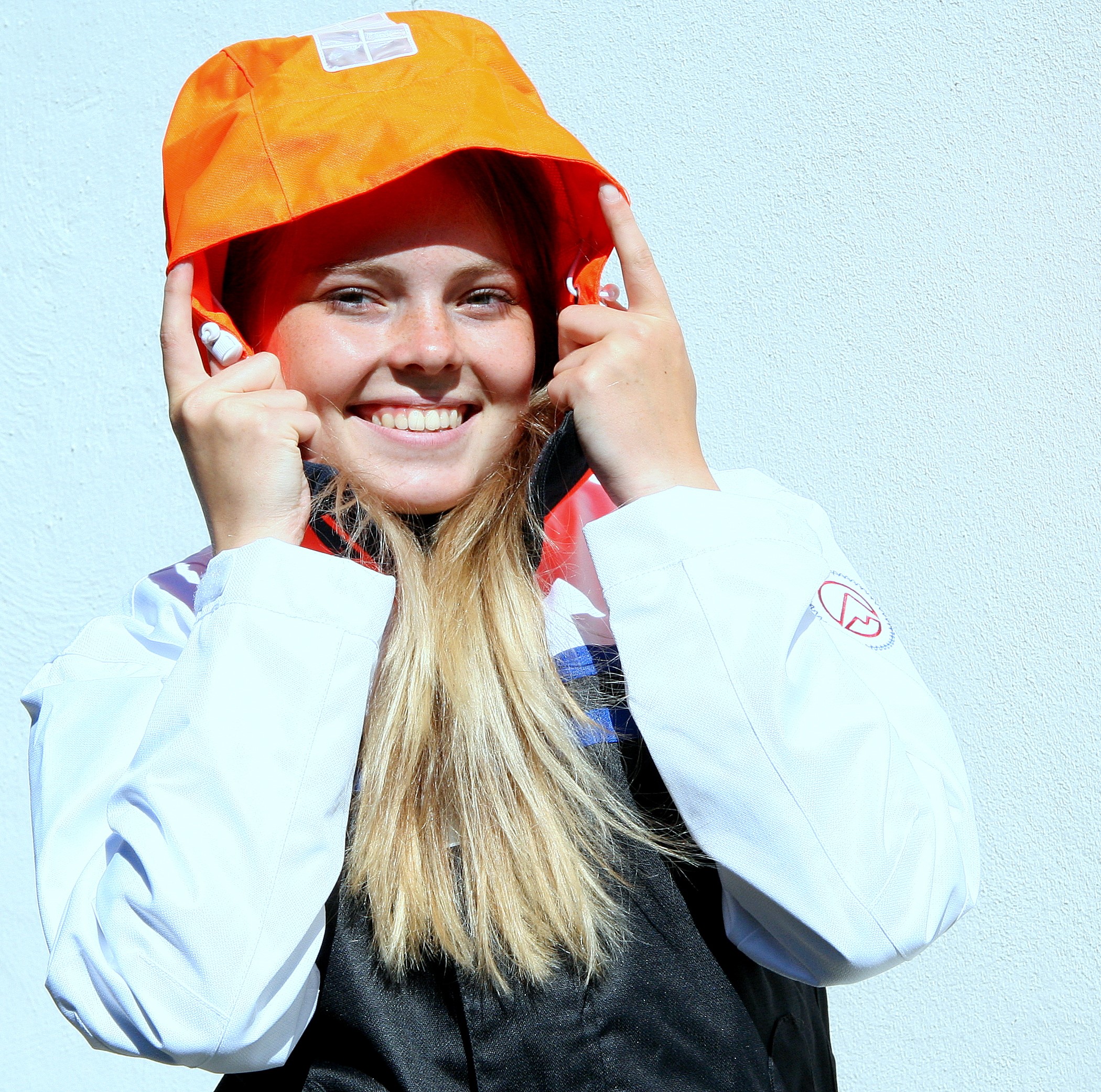
By Cassandra Myhre,
Tromsø, Norway
August 2013 was a time full of changes. It was the beginning of a new chapter in my life. I did not know what to expect or look forward to. The only thing I was certain of was the pain and the complete and utter disappointment I felt when I left my friends and everything behind in Lithuania, moving to my father’s home country Norway. My name is Cassandra (18) and this is my story.
I was born grew up in Vilnius, the capital of Lithuania, and I absolutely adored the city. I danced ballet for 13 years in the “National Opera and Ballet Theatre”, I played the piano for 9 years, I had lots of friends at school and I was engaged in various activities. When I think about what I achieved in Lithuania I get a warm and a tender feeling inside. The memories I have
When I was 6 years old, I started going to a private school. It was hard for
When our friendship started, it was completely different. I went to my first sleepover when I was 12. It was weird and exciting. I became a part of her family; I even cured my fear of dogs (since she had 4 at that time). Either way, the time passed by, I kept on dancing and performing and I could not have asked for a better life. However, one day my parents came to me and told me that we have to move away to Norway. I did not react because I thought this was once again something they came up with impulsively and we would forget about it within a month. But when a month passed by and then the second one and the third one, I realized that this was real. Everything became crystal clear. I would be leaving Greta behind, I would never again be surrounded by people from the theatre and I would never again feel the euphoria when I would perform on the stage. The idea of moving away was somewhat repulsive and I simply tried to push it away. For another year, nothing changed and I thought that it was all forgotten, however, one day my parents informed me that we were taking the ferry to Stockholm from Riga and that it is a one-way trip. I think I could feel my heart stop for a few seconds. I remember the extreme amount of thoughts rushing through my mind and my hands started shake. The first thing I did was to write to Greta and Austeja (another very dear friend of mine whom I have known for 15 years).
When we had to leave, Greta and Austeja came to say goodbye and oh how painful it was to say farewell. Greta even brought me a portrait of us two together, which has always been by my side ever since. The journey began and for some time I felt nothing. No pain, no excitement. We finally arrived to a place called Vollen (not so far away from Oslo) and it was then I realized that this was the reality. The realization hit me hard. For another 6 months nothing seemed to go my way. I went to the International Baccalaureate program but it simply was not as fulfilling if to compare with everything I had in Lithuania.
Time passed by, while I was in a small state of depression. It seemed that nothing would ever change I would have to live in misery forever. However, in May my family decided to move to Oslo. It was amazing. I finally could feel the atmosphere. The ongoing life in the city hit me and it was glorious. I started looking for a job, I started to train, my mom and I would go for our traditional walk to Aker Brygge (one of the most beautiful harbors I have ever encountered) and finally life seemed to be pretty good. In June, I got a job at a restaurant called “The Broker”. I was very excited and for a while, I only concentrated on that. The summer passed by really quickly, and I had to go back to school.
Life was good. I studied, I worked, I trained – what else could I ask for? At the end of the school year I had 14 exams, which was hectic, but I managed. After that, I travelled to Germany with some of my classmates and then to Paris. I felt really proud, because I was saving money for these two trips the whole year and I finally was able to provide for myself. In Paris, I met up with Greta, who came from Lithuania and we had 5 fantastic days in the city center. I have never felt so relaxed and happy for a long time. After that, we both went to Lithuania where I stayed for 2 months. The problem is that I was very excited for my stay in my home country and I was greatly disappointed when I realized that I actually missed Norway. Of course, it was nice seeing my grandparents, my old friends, my old apartment and my theatre. I cried because the feeling of nostalgia surrounded me, but yet, Lithuania seemed different. People did not recognize me as a Lithuanian anymore. In their eyes, I was a foreigner. I felt sadness inside of me. When I was with my friends, the negative feelings would disappear, but when I would look around, there were many people who lived in misery. I had completely forgotten that life in Lithuania is much more complicated than in Norway. I had forgotten that I lived in a country filled with opportunities, whilst people in Lithuania had to fight harder to achieve something. I do not know what is better though. I do agree that some of the teenagers here in Norway are greatly spoiled and perhaps they do not deserve those opportunities that they get. But at the same time, they grew up in the Norwegian environment and they do not know that another kind of life is possible. Don´t get me wrong, I am not defending any of the two countries. Lithuanians, in my eyes, are amazing people, however, some of them lack motivation and I feel that the Lithuanian mentality is captured in a box.
At first I thought it was only me who noticed this, but when I talk to many other people who have left Lithuania, they say the exact same thing. Norway has become very dear to me. Especially now, since I live alone in Tromsø (north of Norway) where I study “Politics, Economics and Philosophy” at the Norwegian Arctic University. Many people ask me if I have ever considered going back to Lithuania to live or study, and my answer is always “no”. I would love to go back to the time when I was 16 years old and life in Lithuania was amazing, but now my life is build up in Norway and it would be simply too hard to leave everything behind. I am happy that I lived in Lithuania for 16 years, and when I moved to Norway, I opened a new chapter.
All in all, I am happy that I am half Lithuanian and half Norwegian, because without these two countries, I would not be who I am today. This contributes greatly to my identity and it makes me proud to say that I have both Lithuanian and Norwegian blood.
- Bookmark :
- Digg
- del.icio.us
- Stumbleupon
- Redit it
- Posted by - (0) Comment
Greetings from Australia!
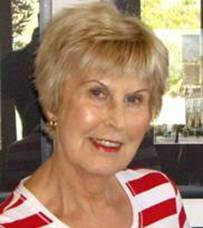 Approximately 10,000 Lithuanians arrived in Australia after World War 2 from refugee camps in Germany. Previously, a small number arrived in the 1800s and then later after World War 1. Lithuanian communities were established in the capital cities of Adelaide, Melbourne, and Sydney. These cities host the bi-annual Lithuanian Days Festival on a rotating basis. Smaller communities were established in Albury, Brisbane, Canberra, Geelong, Hobart, Newcastle, Perth, and Wollongong. The three major centres accounted for about 86% of Lithuanian settlements, with the minor centres for another 10%, with the remainder scattered about the rest of Australia. Lithuanians built their clubs as well as their own houses. In South Australia, Lithuanians built a museum as well as their own church and had Lithuanian priests appointed. Dancing groups, choirs, scouts, sports teams and theatrical troupes were formed. Saturday language schools, staffed by volunteers, flourished. Committees organized concerts to mark special Lithuanian cultural events
Approximately 10,000 Lithuanians arrived in Australia after World War 2 from refugee camps in Germany. Previously, a small number arrived in the 1800s and then later after World War 1. Lithuanian communities were established in the capital cities of Adelaide, Melbourne, and Sydney. These cities host the bi-annual Lithuanian Days Festival on a rotating basis. Smaller communities were established in Albury, Brisbane, Canberra, Geelong, Hobart, Newcastle, Perth, and Wollongong. The three major centres accounted for about 86% of Lithuanian settlements, with the minor centres for another 10%, with the remainder scattered about the rest of Australia. Lithuanians built their clubs as well as their own houses. In South Australia, Lithuanians built a museum as well as their own church and had Lithuanian priests appointed. Dancing groups, choirs, scouts, sports teams and theatrical troupes were formed. Saturday language schools, staffed by volunteers, flourished. Committees organized concerts to mark special Lithuanian cultural events
Most Lithuanian refugees who came to Australia between 1947- 1953 were single men and women or young families. The Australian government needed manpower after the war to replace the men killed in battle. Often young men migrated first and then sponsored their parents and younger siblings. They were housed in disused army barracks like those in Bonegilla near the border of Victoria and New South Wales. These corrugated iron structures were freezing in winter and hot in summer Irrespective of their professions. Lithuanians together with Latvian and Estonian
Known for their generosity, Australian Lithuanians have and continue to host and billet Lithuanian basketballers from America and Lithuania, also politicians and entertainers from Lithuania. Huge numbers of people turned out to meet and greet President Valdas Adamkus whenever he visited Australia.
Nowadays, Lithuanian communities have their own Facebook pages, for
This year a blog was started to collate material about the history of Lithuanians in Australia by Jonas Mockunas: http://earlylithuaniansinaustralia.blogspot.com.au/2015_02_01_archive.html
Jura Reilly’
Victoria, Australia.
Founder of FB group Baltica
Author of “A Wolf at Our Door”Australian Lithuanians
- Bookmark :
- Digg
- del.icio.us
- Stumbleupon
- Redit it
- Posted by - (11) Comment
Have you heard about the
South African “Pencil Test”?

By Karina Simonson
If you are not South African, then, probably, you haven’t. It is a test performed in South Africa during the apartheid regime and was used, together with the other ways, to determine racial identity, distinguishing whites from coloureds and blacks. That repressive test was very close to Nazi implemented ways to separate Jews from Aryans. Could you now imagine a Lithuanian mother, performing it on her own child?
But that is exactly what happened to me when I came back from South Africa. I will tell you how.
Read more...- Bookmark :
- Digg
- del.icio.us
- Stumbleupon
- Redit it
VilNews e-magazine is published in Vilnius, Lithuania. Editor-in-Chief: Mr. Aage Myhre. Inquires to the editors: editor@VilNews.com.
Code of Ethics: See Section 2 – about VilNews. VilNews is not responsible for content on external links/web pages.
HOW TO ADVERTISE IN VILNEWS.
All content is copyrighted © 2011. UAB ‘VilNews’.

 Click on the buttons to open and read each of VilNews' 18 sub-sections
Click on the buttons to open and read each of VilNews' 18 sub-sections 




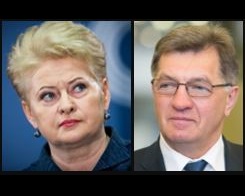












.jpg)



